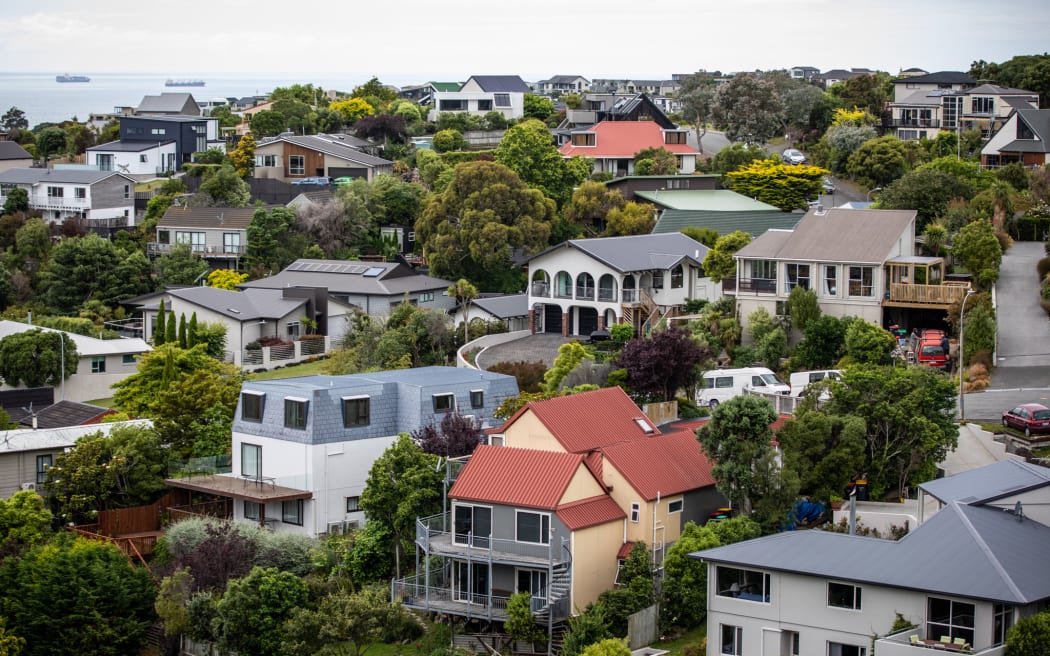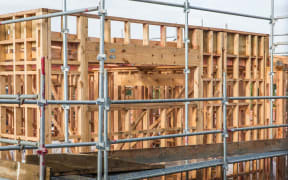
Property values fell 2 percent over the three months ended in February but were higher than a year earlier. File photo. Photo: RNZ / Nate McKinnon
The house market has flattened out with diminishing demand expected to continue, as interest rates and other costs remain high, according to the latest QV House Price Index.
The index indicates property values fell 2 percent over the three months ended in February, but were up 1.3 percent on the same quarter the year earlier.
That was the first annual increase in the price of residential property since August 2022, bringing the national average home value to $925,812.
"The slow but steady growth that we have been experiencing since June last year now appears to be flattening even further," QV operations manager James Wilson said.
Just three of the main urban areas had positive home value growth in the three months ended January, including Tauranga (3.1 percent), Nelson (1.2 percent) and Marlborough (3.1 percent).
Auckland's three-month rolling average fell into negative territory (-0.1 percent) for the first time since August last year. Values in Wellington (2.5 percent) and Christchurch (2.4 percent) continued to grow at a reduced rate.
"This flattening trend is largely being driven by diminishing demand. In some areas, it appears that the increase in the number of new listings that came onto the market in late January and in February appears to have met market demand, cooling competition in places like Auckland in particular, and therefore flattening home value growth," Wilson said.
"This trend is expected to continue over the next few months.
"But with such strong economic headwinds in place, we're also unable to pinpoint anything that would spark a return to strong value growth over the next 3-6 months.
"There is still a reasonable amount of uncertainty about what the Reserve Bank will do next - whether we'll see it cut the OCR late this year, or whether we might even see it rise further.
"Either way, the real estate market doesn't tend to like this sort of uncertainty," Wilson said.
Regions mixed quarter on quarter
Northland saw slow and steady quarter-on-quarter growth.
Auckland's slow-but-steady home value growth stalled in February.
Tauranga's home value growth remained relatively robust compared with most other main centres.
Waikato's home value growth - including Hamilton - was slow.
Values nudged up across the Taranaki region.
Hawke's Bay was mixed, with values up in Napier and down in Hastings.
Property values largely stabilised in Palmerston North.
Home values in Wellington continued to slowly push upward.
Nelson saw another modest increase in average home value.
Low sales volumes on the West Coast was causing home value levels to peak and trough.
Home values continued to grow in Canterbury, but at a slower pace.
In Christchurch, the average home value had increased by 2.4 percent.
Home values rose across the wider Otago region by an average of 3.4 percent.
Dunedin saw the smallest amount of growth within this period, with its average home value increasing by 1.8 percent.
Home values continue to climb upward in Queenstown by 4.2 percent.
Invercargill's residential property values fell 0.5 percent.






